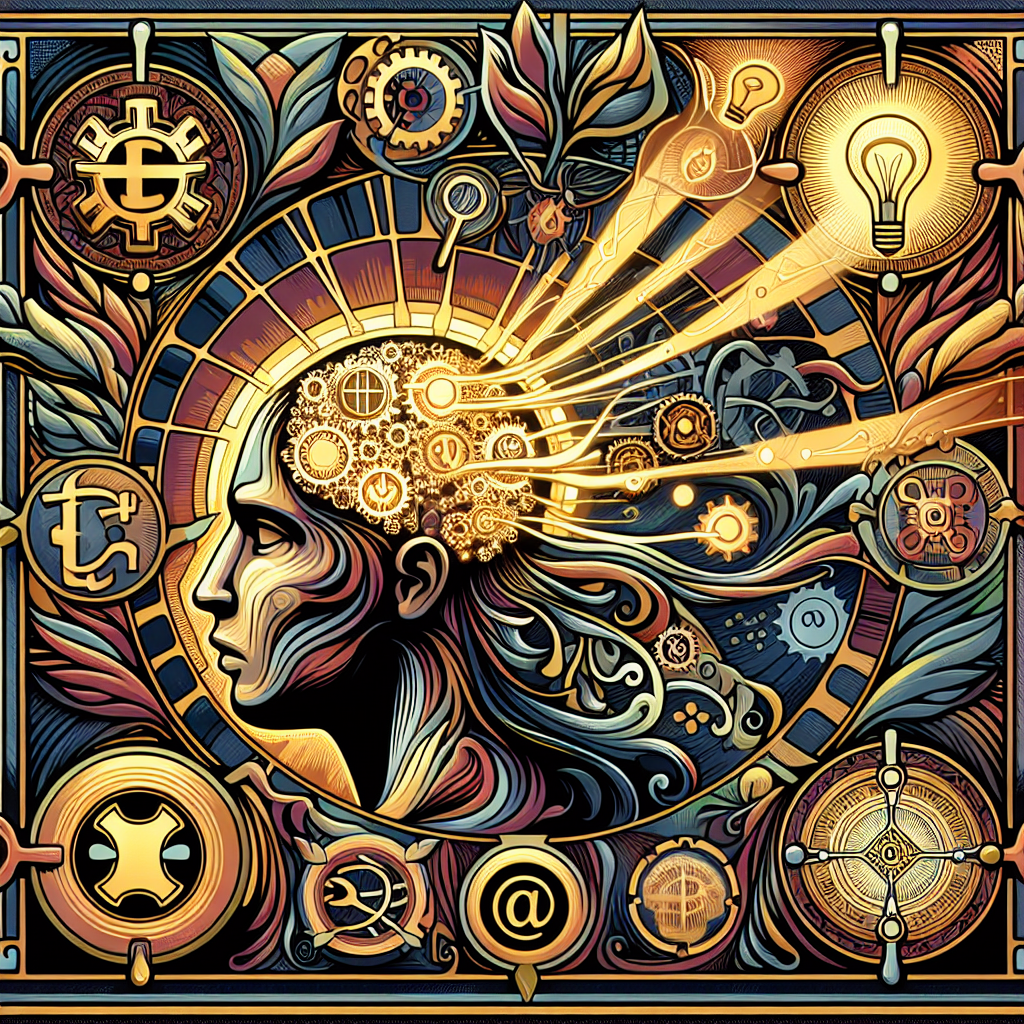Beyond Gold and Real Estate: The Untapped Potential of Intellectual Property Tokenization

While the world rushes to tokenize anything with a foundation or a shiny surface, the most valuable assets might be the ones residing between your ears. Intellectual property – those intangible creations of the mind – represents the next frontier in the tokenization revolution, potentially dwarfing traditional RWAs in both value and versatility.
The Intellectual Capital Goldmine
Patents, copyrights, trademarks, and trade secrets collectively form a $180 trillion global asset class – yet they remain some of the most illiquid and underutilized assets in existence. Think about it: the formula for Coca-Cola might be worth billions, but unlike real estate, you can't exactly slice it up and sell it to investors... or can you?
Enter tokenization – the process of converting rights to an asset into a digital token on a blockchain. While we've seen this applied to buildings and precious metals, intellectual property presents unique opportunities and challenges worth exploring.
How IP Tokenization Works
The mechanics are deceptively simple:
- Asset Identification and Valuation: The IP (patent, copyright, trademark) is evaluated and assigned a market value.
- Smart Contract Creation: Legal rights, revenue distribution, and usage terms are encoded in immutable smart contracts.
- Tokenization: The IP is split into digital tokens, each representing ownership percentages or specific rights.
- Distribution and Trading: Tokens are sold to investors who can then trade them on secondary markets.
If this sounds straightforward, that's because I've omitted the complicated legal gymnastics involved. But more on that later.
Success Stories That Make You Think
Several pioneers are already making intellectual property tokenization a reality:
Royalty Revolution in Music
Platforms like Royal, Bolero, and JKBX are redefining music ownership. Instead of artists signing away their souls to record labels, they can now offer fractional ownership directly to fans. In 2022, Royal enabled musician Nas to tokenize royalty rights to two of his songs, allowing fans to earn income alongside their favorite artist while potentially enjoying appreciation in token value.
Think of it as crowdfunding with actual ownership rights attached – instead of getting a signed poster for your support, you get actual royalty payments when the song plays on Spotify. That's certainly an upgrade from the band T-shirt of yesteryear.
Patent Power Unleashed
IPwe, backed by IBM, is creating a global patent marketplace using blockchain technology. By tokenizing patents, they're transforming how innovations are licensed, traded, and monetized. This addresses a significant market inefficiency – an estimated 95% of patents are never licensed or commercialized, representing trillions in dormant intellectual capital.
For inventors who aren't exactly business moguls, this means their brilliant garage innovations don't have to gather dust while they figure out commercialization. The patents can be tokenized, with investors funding development while sharing in future licensing revenues.
Research & Development Gets Decentralized
Perhaps most fascinating is Molecule's approach to biomedical research. This platform tokenizes research data and IP rights, allowing decentralized funding of medical innovations. Investors can purchase tokens representing fractional ownership in potential treatments or drugs, democratizing both the funding and rewards of scientific breakthroughs.
Considering the average cost to develop a new drug exceeds $2 billion, this model could revolutionize how we fund medical innovation. Imagine owning a small slice of the next breakthrough cancer treatment – both a potential financial windfall and a contribution to humanity.
Revenue Streams You Never Thought Possible
The tokenization of intellectual property creates revenue models that simply weren't feasible before:
Fractional Royalties
Whether it's a book, song, film, or software, creators can now sell percentage-based royalty rights directly to their audience. Smart contracts automatically distribute earnings in real-time based on actual usage – no more waiting for quarterly royalty statements that require a magnifying glass and accounting degree to decipher.
Patent Portfolios as Investment Vehicles
Companies can tokenize portions of their patent portfolios, creating new capital streams without surrendering full control. This transforms dormant IP assets into working capital that can fund new innovations – a self-perpetuating cycle of value creation.
Collateralization of Ideas
Tokenized IP can serve as collateral for loans and other financial instruments, unlocking capital without traditional financing hurdles. For creators and innovators who are asset-rich but cash-poor (a common predicament), this represents a game-changing financial tool.
Of course, explaining to your traditional banker that you'd like to use your tokenized poem collection as loan collateral might still raise some eyebrows – but that's changing rapidly.
Challenges: It's Not All Tokenized Roses
Before you rush to tokenize your brilliant sandwich-making technique, let's acknowledge some significant hurdles:
Legal Complexities
IP laws vary dramatically across jurisdictions, making global tokenization a legal minefield. Questions abound: Does tokenization constitute a securities offering? How are rights transferred across borders? Can smart contracts adequately capture the nuanced legal frameworks governing different IP types?
When your asset exists primarily in the abstract realm of legal rights, tokenizing it becomes exponentially more complex than digitizing the deed to a building.
Valuation Headaches
How do you accurately value a patent that might be worthless or worth billions depending on future market conditions? Unlike real estate with comparable properties and established valuation methods, intellectual property often lacks reliable benchmarks.
Imagine trying to price the patent for touch-screen technology before smartphones existed – that's the kind of crystal ball gazing we're talking about.
Security Concerns
Smart contracts governing IP rights must be impeccably coded, as vulnerabilities could lead to catastrophic loss of control over valuable intellectual assets. The immutability of blockchain – normally a feature – becomes a frightening bug when errors in IP rights distribution can't be easily corrected.
The Future: Where Thoughts Become Assets
Despite these challenges, the tokenization of intellectual property represents perhaps the most exciting frontier in the RWA space. Here's what the future might hold:
Dynamic IP Markets
As standardization increases, we'll likely see vibrant secondary markets for tokenized IP, where rights to innovations, creative works, and brands trade as fluidly as stocks do today. Imagine specialized exchanges where medical patents, entertainment rights, and software licenses find their true market value through global participation.
Democratized Innovation Funding
The tokenization of research and development could democratize innovation funding, allowing retail investors to back specific projects they believe in. This would create a more direct connection between public interest and innovation funding, potentially addressing current misalignments in research priorities.
Creator Renaissance
Perhaps most profoundly, IP tokenization could trigger a renaissance for creators by establishing more direct, transparent, and equitable connections with their audiences. By cutting out traditional intermediaries and enabling fractional ownership, creators could build sustainable careers while maintaining control of their work.
Getting Started: Where Opportunity Meets Preparation
For investors looking to explore this space, consider these entry points:
- Platform Investments: Companies building the infrastructure for IP tokenization represent ground-floor opportunities.
- Direct IP Token Purchases: Platforms like Royal allow direct investment in tokenized creative works.
- IP-Focused Funds: Emerging funds specializing in tokenized intellectual property offer diversified exposure.
The key is understanding that we're still in the early innings. The regulatory landscape remains unsettled, standards are evolving, and best practices are being established through trial and error. This means both higher risk and higher potential rewards – the classic early adopter equation.
Conclusion: The Ultimate Alternative Investment
While buildings deteriorate and gold just sits there looking pretty, intellectual property actively generates value through innovation and creative expression. Its tokenization represents perhaps the purest form of investing in human ingenuity.
The next trillion-dollar asset class won't be something you can touch – it will be the tokenized thoughts, innovations, and creative works that drive our economy forward. In a world increasingly dominated by intellectual capital, the ability to fractionally invest in the best ideas represents an investment frontier with truly limitless potential.
After all, they say investing is a thinking person's game. With tokenized intellectual property, that statement takes on an entirely new meaning – you're literally investing in thought itself.




